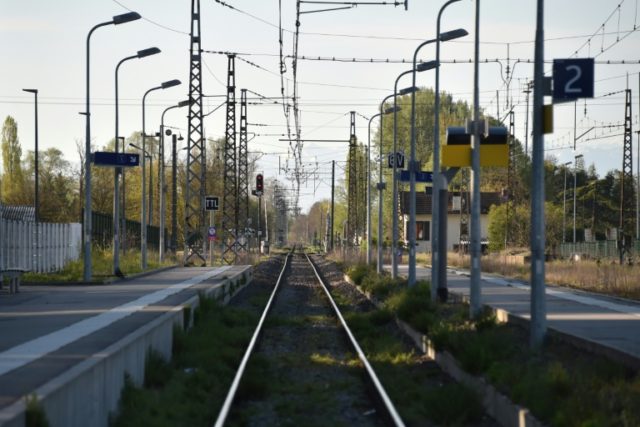Paris (AFP) – A month ago, President Emmanuel Macron was facing his biggest showdown with France’s trade unions. It was to be his “Thatcher moment,” some observers predicted, recalling a make-or-break time for Britain’s prime minister in the 1980s.
By taking on reforms of the debt-laden SNCF railways, Macron has thrown down the gauntlet to one of the strongest bastions of French trade unionism — the same way Thatcher did with mining unions in 1984.
On April 3 rail workers launched the longest strike sequence ever for the network: stoppages every two days out of five until June 28.
Analysts agreed that if Macron backed down as a result, the 40-year-old centrist could kiss goodbye to further ambitious reforms of the civil service and pensions.
CGT union chief Philippe Martinez said last week that as with every strike movement, “there are highs and lows”.
“But it has settled at a high level,” he insisted.
As the disruption enters its sixth week, however, there seem more lows to worry about than highs for Martinez, with momentum clearly in Macron’s favour.
Having prevailed in his first clash with the CGT last October over changes to labour law, Macron appears to have the upper hand — for at least five reasons:
– Public opinion –
Public opinion remains broadly behind government plans to remove job-for-life privileges for new recruits on the railways and to turn the organisation into a public company.
The government’s argument that SNCF benefits are too generous appears to resonate, while Macron has repeatedly denied claims from the CGT that he is preparing a privatisation by stealth.
An Ifop poll published Sunday showed 56 percent believe the strikes are “not justified”, in line with other surveys since April.
“That’s the big difference compared to 1995 when the French were for the reforms at the beginning but then got behind the strikers,” veteran political commentator Alain Duhamel said recently, referring to massive stoppages 23 years ago.
– Falling participation –
The number of staff joining the strikes has also fallen progressively.
Some 57 percent of train drivers took part in the seventh round Thursday and about 63 percent on Friday morning, down from 77 percent at the start.
This has allowed SNCF managers to keep more trains running: half of high-speed TGVs ran during last week’s strikes, up from one in eight at the start.
– Technology –
Rail users have managed to adapt to the regular strike pattern.
Real-time information on phone apps, car-sharing and remote working arrangements have helped many workers avoid problems or organise their travel on non-strike days.
A BVA poll on April 25 found that for 74 percent of respondents, the stoppages had no impact on their personal life.
“The strike design might have seemed innovative, but in the medium term it looks like it has gradually boomeranged,” Dominique Andolfatto, a specialist in trade unions at the University of Bourgogne, told AFP.
– No mass uprising –
The rail strike has not spurred the wider, more powerful movement against the government to defend public services, which CGT leader Martinez has consistently called for.
He had raised the idea of a re-run of the epic 1968 anti-government protests by students as well as workers, who launched a general strike in their millions which paralysed France.
But although there have been several mass protests and a handful of French universities occupied in recent months, neither students nor other public sector workers have mobilised in large enough numbers to really pressure the government.
– Fading influence –
Unions themselves have been divided over how to approach Macron’s plans to reform the vast French public sector, cut spending and ease rules and taxes for businesses.
The CGT, once aligned with the Communist party, has spearheaded resistance and the “struggle” against Macron.
But other unions such as the CFDT, the CFTC or Unsa have been more open to dialogue, not confrontation — the sort of German or Scandinavian-style labour relations that Macron says he favours.
The power of unions, once fearsome forces in French public life, has been in steady decline for decades due to political, economic and sociological changes in France, experts say.
Guy Groux, a professor at Sciences Po university in Paris, told AFP their last real victory was in 2006 when they forced then president Jacques Chirac to abandon plans for new job contracts for young people.
The rail reform legislation has already cleared the lower house of parliament, where Macron’s party holds a huge majority, and will now be considered by the Senate.

COMMENTS
Please let us know if you're having issues with commenting.